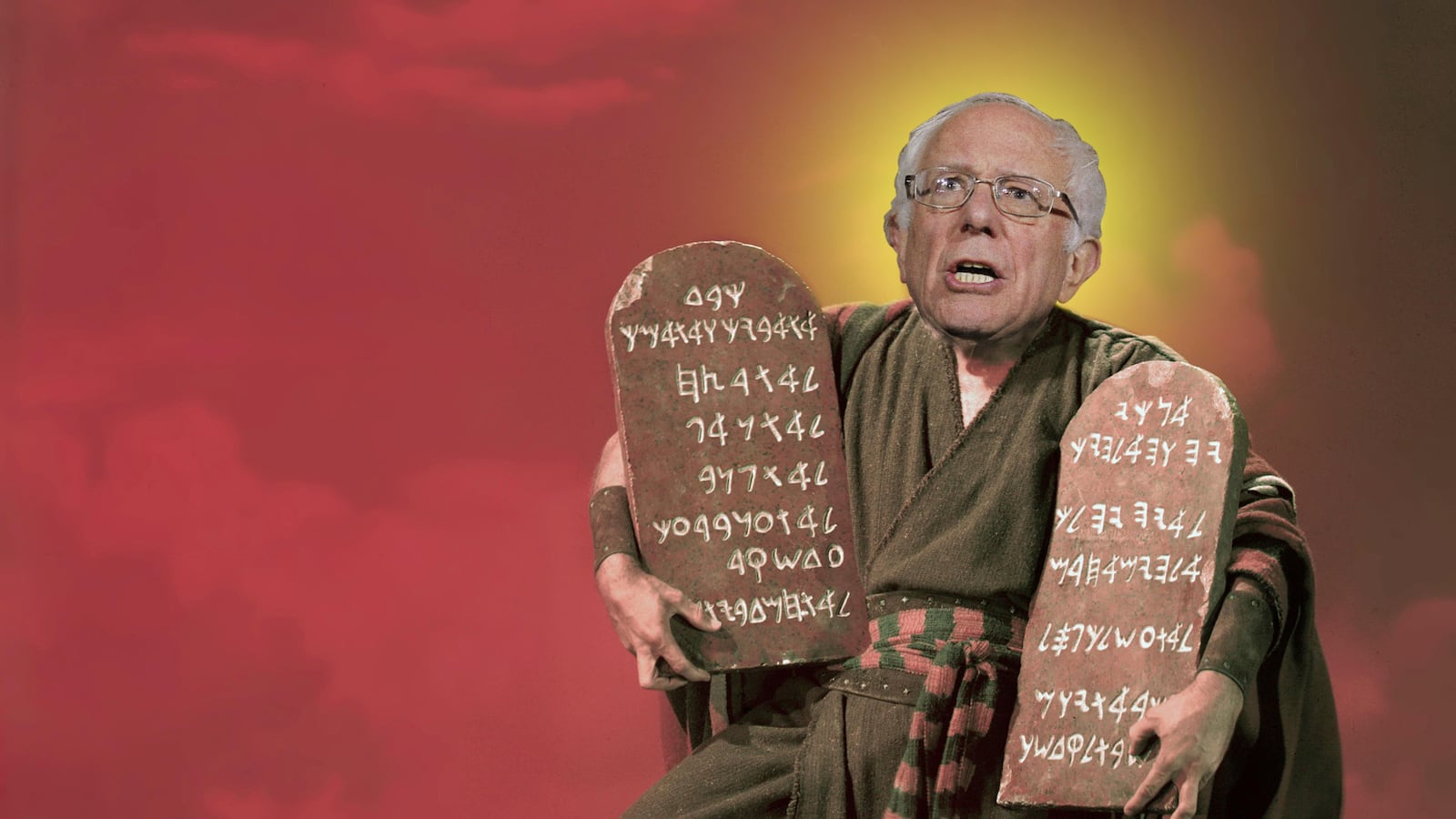The Democratic ground has shifted in New York. Yes, the polls suggest Hillary Clinton will win, maybe even handily, Tuesday in what, for want of a more compelling alternative, must be called her home state.
But let’s cut to the chase. Going back to the 1950s, the New York primary was the stop on the national schedule where the candidates pledged their loyalty to Israel. I remember very clearly the first New York primary I ever covered, in 1988. That was the year that Ed Koch, then the mayor, famously said that Jews would have to be “crazy” to vote for Jesse Jackson.
But New York has changed, and its Democratic party has changed dramatically since Koch endorsed Al Gore, who, stuck in third place in a three-way race, opened New York’s contest by accusing Michael Dukakis of putting “public pressure on Israel” due to his a “naive legalism, an exaggerated faith in the United Nations, and a seeming reluctance to ever have the United States act on its own when necessary.”
From there, it was off to the races as Koch endorsing Gore and firing some wild shots at Dukakis and especially Jackson.
That 1988 primary was the worst, but in just about every New York primary since, candidates in both parties have competed to out-Israel each other, which has usually meant adopting not merely pro-Israel talking points but pro-Likud ones.
I expressed the fear after Sanders won Wisconsin that Clinton might try to turn New York into an Israel referendum. She could have. And maybe she would have if the polls were closer. But she has not.
Not only that. The needle moved significantly, and astoundingly, in the other direction. Here, Sanders deserves tremendous credit.
He said at last Thursday’s debate: “As somebody who is 100 percent pro-Israel, in the long run—and this is not going to be easy, God only knows, but in the long run if we are ever going to bring peace to that region which has seen so much hatred and so much war, we are going to have to treat the Palestinian people with respect and dignity.”
An acknowledgement that Palestinians are human beings—during a New York primary, no less!
Clinton could have—and 12 or so years ago, undoubtedly would have—responded by saying something like until the Palestinians get better leaders and stop teaching hatred to their children, my posture won’t change. Not only did she not do that, but Sanders forced her to acknowledge the point.
She said: “As Secretary of State for President Obama, I’m the person who held the last three meetings between the President of the Palestinian Authority and the Prime Minister of Israel. … Three long meetings. And I was absolutely focused on what was fair and right for the Palestinians. I was absolutely focused on what we needed to do to make sure that the Palestinian people had the right to self-government.”
Sanders is to be commended for this anti-pandering—it could herald the start of a positive change in the way Democrats at least talk about the Middle East. But he was also able to get away with it because New York has changed so much. In 2011, Ed Koch came from seemingly nowhere to hijack the special election to replace Anthony Weiner in the House, turning it into a nationally viewed referendum on Obama’s Israel policies and costing Democrats what had seemed like a safe seat in the process. That was his last hurrah, and may have also been the last one for the staunchly pro-Israel Jewish Democrats who were once a dominant force in the party’s politics.
The Jews who remain in the party, especially those younger than 40 or so, are much more anti-Likud than the generation that’s been dying off (if Koch were still alive, he’d probably have popped off about Sanders’s comment, and we’d have stormed our way back to 1988 again).
On that one, Sanders showed that he’s more in touch with the current mindset of a crucial New York constituency than Clinton is. But with regard to African-American and Latino voters, especially those older than 40 (which is to say most of them), he still displays no feel at all for them, and no intrinsic empathy. Carrying on as he has about the South being “conservative” is, as I wrote last week, insulting to black voters everywhere. I’d have to bet this is a big topic of discussion on New York black radio, and was Sunday in the social halls of AME churches from Brooklyn to Buffalo.
If Clinton wins, the margin will again be provided by these voters. I’ll be very interested to see what the tallies are in state’s three political regions: the city, the suburbs (Nassau, Suffolk, Westchester, Rockland, Putnam), and upstate. If the polls are right and Clinton wins by double digits, she should carry them all; and with 247 total delegates at stake (not including the supers), the difference between a 12-point win and a three-point win could amount to 12 or 13 delegates—a huge difference at this point in the campaign.
I was standing in that field on Pat Moynihan’s farm that day in July 1999 when Clinton first put herself out there as New York’s future senator. She served the state by all accounts well, well enough that the Republicans couldn’t muster up a serious candidate against her when she ran for reelection, and well enough, if the polling holds up, to push her across the finish line tomorrow.
But if this New York primary is remembered in the future for anything, it’ll be remembered as the one that finally buried some nasty ghosts from 1988, and it’ll be Sanders who will deserve the credit for that.






